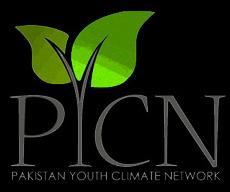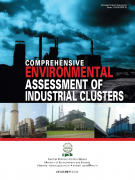/topics/climate-change
Climate Change
Water, climate change and adaptation: Focus on the Ganges river basin - A working paper by Challenge Program on Water and Food
Posted on 18 Aug, 2010 11:11 PMThis working paper by the Challenge Program for Water and Food explores the intersection between water management, climate change, and adaptation in the Ganges River system, a basin vital to the security, economy, and environment of South Asia.
Recognizing that an understanding of both the science and the policy of water management, climate change, and adaptation is rapidly evolving, it is not the intention of the paper to encompass all the issues related to these broad fields, but rather to provide a starting framework from which to further develop research questions and priorities for work in water and adaptation.
Impact of climate change on water resources and glacier melt and potential adaptations for Indian agriculture - A working paper by Challenge Program on Water and Food
Posted on 17 Aug, 2010 11:24 PMThe paper by the Challenge Program on Water and Food deals with the impact of climate change on water resources & glacier melt and potential adaptations in Indian agriculture. Global climatic changes will have major effects on precipitation, water availability, glacier/ice melt, and sea level rise. Climate-induced changes in hydrological conditions will affect the magnitude, frequency, and damage costs of future extreme events.
Pakistan flood relief appeal
Posted on 17 Aug, 2010 12:11 PMContent Courtesy: Pakistan Youth Climate Network

Indo-Gangetic river basins: Summary situation analysis by Challenge Program on Water and Food
Posted on 16 Aug, 2010 07:37 PMThe paper by the Challenge Programme on Water and Food (CPWF) - Basin Focal Project provides a brief situation analysis related to water, agriculture & poverty, water resources, water productivity, institutional aspects and opportunities & risks related to the development of the Indo-Gangetic basin (IGB). Management of IGB water resources presents some formidable challenges and, therefore, steps must be taken towards integrated management of the IGB’s water and land resources in order to ensure the future sustainability of all production and ecosystems in the basin.
Leh cloud-burst: A first-hand account
Posted on 16 Aug, 2010 11:44 AMMidnight, August 6, 2010: "Link, wake up! Water is coming in from the roof!" My mother and I were in Leh, Ladakh, staying at "Eco-Homestay," the house of Mr. Sonam Gyatso and family, in Lower Sankar. The house was made in a hybrid of traditional and modern construction techniques: the main hall in the house was concrete, while rooms surrounding it were made of sun-dried mud bricks, and roofed with Poplar beams, a mesh of willow branches, and a thick pad of fine clay-like mud. The house incorporated passive solar building techniques, such as a direct-gain room, and a Trombe wall, and had solar-powered lighting. It had been raining since evening, and by midnight the clay roof was saturated and began to leak.
We were in Leh for the express purpose of meeting with Helena Norberg-Hodge, the founder of the International Society for Ecology and Culture, co-founder of the International Forum on Globalization, founder of the Ladakh Ecological Development Group, and founder of the Women's Alliance, Ladakh. We had learned of her online, seeing an article of hers in CounterCurrents.org, and watching her video "Ancient Futures." She is the only person who has critically witnessed the "development" of Ladakh, from complete self-sufficiency in an exceedingly fragile eco-system, to the disaster under which it writhes today. She has seen how "development" pulls people into a money economy, increases the distance between production and consumption, brings reliance on fossil fuels (especially apparent in Leh where fuel and commodities are trucked in over a hazardous two-day journey from lower altitudes), results in urbanization and rural-urban migration, and brings psychological impoverishment to the people it is inflicted upon. For 35 years, she has been working to bring safe, stable, and ecologically sound development to the region through her organizations. Her work today, no longer limited to Ladakh, is focussed on spreading economic literacy among people throughout the planet, educating about the deeper impacts of globalization and today's consumer mono-culture. Garnered from her years of observation and research, she has an important message for humanity today, which is what prompted us to go and meet her.
The neocolonial path to power - Article in the Himal Southasian
Posted on 13 Aug, 2010 10:15 AMThis is a translation from the Nepali of an article that first appeared in Nepal magazine on 11 July 2010. Dipak Gyawali is member of the panel of experts reviewing the Mekong River Commission’s Basin Development Plan and vice-chair of the technical committee of the UN’s World Water Assessment Programme. He was Nepal’s Minister for Water Resources during 2002-03.
Many Nepalis would be shocked to hear that Bhutan will face load- shedding from the coming winter. The citizens of Nepal have, after all, been told for decades that Bhutan has done a great job of developing hydroelectricity, that it has earned significant money by exporting electricity to India, and thus it has been able to achieve the highest per capita income in Southasia. Conversely, Nepal has been ridiculed for wallowing in ‘empty nationalism’ and stirring ‘needless’ controversies over the Mahakali Treaty of 1996 (for water sharing on the Mahakali River) as well as hydropower projects such as the West Seti, both of which involve export of electricity to India.
Mountains of concrete: Dam building in the Himalayas - A report by International Rivers Network
Posted on 11 Aug, 2010 07:38 PMThis document by International Rivers Network provides a background for the recent plans initiated by India, Nepal, Pakistan and Bhutan to build several hundred dams on the Himalayan mountains, which store vast amounts of water and with their high slopes and fast moving rivers, present a huge potential for generating hydropower.
India, Nepal, Pakistan and Bhutan have been facing the increasing challenges of meeting their rising elecricity and energy needs and hydropower dams in the Himalayas are being proposed as solutions to meet a considerable part of these requirements.
The document examines the various arguments that have been put forward against the building of the dams as against the proposed advantages that the dams are claimed to have for these four countries, which share common geographical, topographical and eco-climatic features but have starkly different political and economic contexts.
48% industrial clusters in India are critically polluted: CPCB
Posted on 10 Aug, 2010 11:38 PM A Comprehensive Environmental Pollution Index (CEPI) is a very useful tool to capture the health dimensions of the environment including air, water and land. The CEPI is intended to act as an early warning tool and can help in categorising the industrial clusters/areas in terms of priority of planning needs for interventions.
A Comprehensive Environmental Pollution Index (CEPI) is a very useful tool to capture the health dimensions of the environment including air, water and land. The CEPI is intended to act as an early warning tool and can help in categorising the industrial clusters/areas in terms of priority of planning needs for interventions.
This report by the Central Pollution and Control Board (CPCB) presents the results of the application of the CEPI to selected industrial clusters or areas.
The main objective of the study was to identify polluted industrial clusters or areas in order to take concerted action and to centrally monitor them at the national level. This was in order to improve the current status of environmental components such as air and water quality data, ecological damage, and visual environmental conditions.
Economics of River Flows - A book by Dr.Bharat Jhunjhunwala
Posted on 09 Aug, 2010 06:06 PMThis book is essential reading for economists, power sector officials, power generation companies and environmentalists alike.
Dr.Bharat Jhunjhumwala holds a BSc degree in physics, chemistry and mathematics. He earned his PhD in food and Resource Economics from University of Florida at a tender age of 23 years. He joined Indian institute of management, Bangalore as Assistant professor immediately thereafter. He lived in a slum for two years to understand poverty and organized the Trade Union at IIM during the Emergency. He resigned from the IIM and became a consultant to donor agencies like Swiss Development Cooperation, Oxfam, Care, Overseas Development Institute and others mainly on rural development and watershed issues. He writes a column on economic issues for about 50 newspapers in india. He lives on the banks of River Alaknanda in uttarakhand on the feet of Lord Badri Vishal.
Invitation for case study submission in water magazine
Posted on 06 Aug, 2010 11:26 AM
Our publication is coming up with the annual "Case Study Special Issue” in Sept. 2010. Its a collector’s issue, where we are covering leading industries across the globe.





